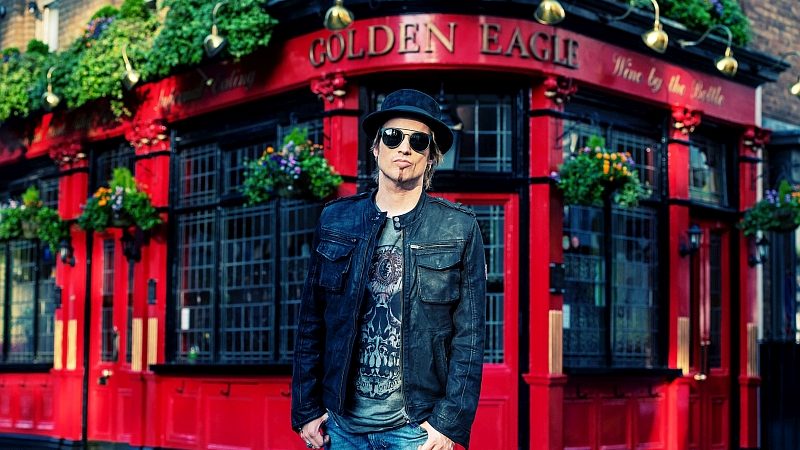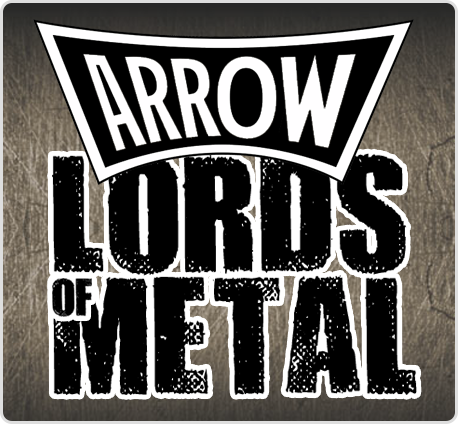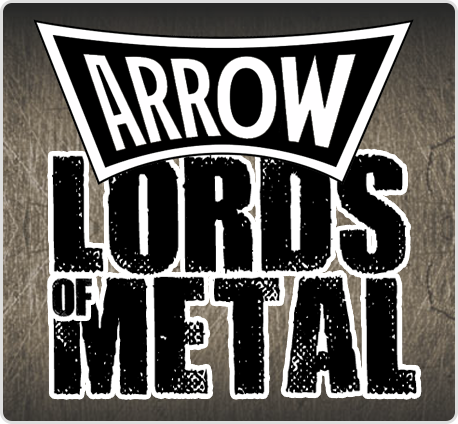
Tobias Sammet: “Maybe I am an Englishman trapped in a body of a German. I like those places where a normal modern civilest would think: this is old and broken, but Englishmen embrace their traditions.”
Het enthousiasme van het vriendelijke genie Tobias Sammet kent geen grenzen. Telkens we de ondernemende muzikant spreken – en geloof me, dat hebben we al talrijke keren gedaan aangezien we hier spreken over één van de boegbeelden der Duitse metalscène – vallen onze vragen in het niets, vergeleken met de onstuitbare monoloog die de tengere, maar o zo ondernemende duivel-doet-al wil delen met ons. Deze keer was het nieuwe album ’Moonglow’ het onderwerp van ons gesprek en reken maar dat we ook filosofische beschouwingen deelden met Sammet. Na onze gezellige introductie gaan we over tot de orde van de dag…
Door: Vera – 4 maart 2019
This record has been coming into being in a more relaxed way, without deadline and things like that. Can you tell anything more about that?
When I came home from the ‘Ghostlights’ tour, I was looking back on what I had done in the years before. I had two bands and I did all the work for the two bands and I was exhausted and I did not want to come up to expectations anymore, because the metal community was thinking: ‘Now he is doing that’ and right after: ‘Now he is doing that’, I kind of slowed down. I did not have a contract at that time, at my own pace, I did it at my own speed this time. That’s how I wanted it.
But building your own studio must have been quite a challenge as well, with loads of things you have to arrange…
It was more of a hobby. I had nobody waiting until it was finished. Sascha helped me to get the equipment together. First I thought about writing a solo album and I started to write songs. The songs sounded as… ‘my material’, and I was thinking of doing a solo album. I wanted Sascha as guitar player anyways. I got Sascha involved, because he is the best guitar player I know and since he was going to produce the album, with me together… the material sounded like Avantasia. Down the line Avantasia is a solo project. It is a solo project with treasured guest musicians where I make the calls and I say what is going to happen, invite the guest stars and so on. At a certain point in time I said: okay, this is a new Avantasia record. Then we did the Edguy anniversary tour. But I tried to do what was not expected, since I tried to do what I was capable of at my own speed. I still have so many songs that I did not even used on the record. They need some further production, that’s all. It is a very exciting and creative, prosperous era, I would say, for myself, I just laid down the shackles of deadlines and business. I turned my back a little bit to the record industry, because I was not even negotiating the contract to get me a record deal with Avantasia. I did not want to have to do with those things and that was great. I contacted a lawyer to get me a record deal this time. In the past I always did everything myself, because if you want to survive in the music business of the 21st century, you have to do everything yourself. You cannot rely on somebody else. You have to watch all business matters and be your own boss, even that is not enough. It is not done to write music and leave everything to the management, because they will screw you. Okay, I can be a manager, but I cannot be a lawyer who goes through all the paragraphs, checking out what is possible and what not. Eventually I ended up with Nuclear Blast again. It feels like nothing has changed, but for me it feels more relaxed.
In the end the circle of friends you are working with remains the same…
Some people have the misperception of Avantasia, being a collective only focused on presenting new names as guests, but we have the same circle of friends, the same core in the studio and live. It is true, we have Mille from Kreator now and nobody expected that, but those surprises are not the core of Avantasia. It is about creativity and about fulfilling a wish for myself and that’s what I am trying to do. All the time. I work really good if I have an environment that is not totally predictable but at the same time reliable, and of course as an artist it has to be an environment that inspires me. Working with people like Bob Catley, Michael Kiske and Geoff Tate inspires me so much. Jorn Lande, Ronnie Atkins, Eric Martin… These are icons and legends to me and I admire them as a fan. Working with them instantly inspires me so much.
But you also had some creative breaks in England. What can we imagine of that?
I just love the country, but I don’t know why. I like historical buildings, I just like to hang out in cozy, magical places. I like the way the English embrace tradition. They are relaxed enough over there to let old things be old and not replace or renew or repair them immediately. They embrace tradition. I like that. It is hard to explain it, but it feels like coming home when I go to England. I go to historical hotels or older buildings. They have historical and Victorian buildings, sometimes they made a hotel of it and I go down the road to a pub where I sit in reveries. I like the way they have mental peace in their pubs. Having a beer in their old brown, mahogany wooden furniture. Right now I am sitting at a desk which is a Victorian giant hand-carved desk. I have imported it from England. I like these things and England stimulates me. I went there to stimulate my creativity and to relax in the first place, and combine the both, but it was extremely inspiring for me. I went there again and took my recording devices with me and recorded in the hotel. I did it again and again. These breaks were creative. The topic of the new record has also been inspired by the English writers like Arthur Machen who wrote ‘The Great God Pan’ and Algernon Blackwood. I don’t want to say ‘gothic novelists’ because they are Victorian novelists. It is a kind of English revival of the gothic novel. That kind of stuff is really inspiring to me and it appeals to my imagination and I love England. Well, we have great castles here in Germany as well, but I just love to hang out in those English cozy magical haunted places.

I think England is a very special place on that matter. I haven’t been there too much, only a couple of times at the countryside and that was really nice.
I think so too. It is an island and they remained a bit isolated. I like Ireland as well, the country, but England and Scotland is more familiar to me. I fell in love with that Britain atmosphere the first time I was there. Maybe I am an Englishman trapped in a body of a German. I like those places where a normal modern civilest would think: this is old and broken. In a way I am old and broken as well. Some people laugh because I always refer to magic, but I am not a lunatic. To me, when I speak of magic, it is about those kind of places. There are no ghosts flying around, but there is the ghost of creativity. The ghost of inner peace. Whatever you call it, it haunts you, it is magic, it is just a different name for something that it hard to describe. I read an article few months ago about psycho-geography, in which scientists spoke about the influence of your environment on your mental constitution and on your creativity. There is a scientific description for it and that already proves that there has to be something about it, it is yet to be analyzed and categorized, but still there is something. I think I am very sensitive to psycho-geography. For me it is really important. For this record and also for previous albums, I have written huge parts in the forests. I don’t do that to come across like a total idiot, I just get that feeling there I cannot have somewhere else. I am at peace with myself, it helps me connect the wires in my head. It helps me tickle the right nerves to come up with something that I could not come up with when being somewhere else. In the wrong environment.
I think a creative artist is a product of its environment. Always…
Absolutely. Definitely.
I like the folkloristic bard-like atmosphere on the record, even invigorated by the vocals of Hansi Kürsch…
Yes, it came naturally. We should mainly refer to ‘The Raven Child’ which is the song with the most folk-like elements. I love the others as well, but this one is my ultimate favourite. That song is three times longer than the others.
And in the final part it made me think of ‘Heaven And Hell’…
It was not done on purpose. Of course, those Dio kind of songs like ‘Die Young’ have always impressed me the most. I really like those songs. As I just said, creative output is a result from your environment, but also a reflection of your influences. Your own personal favourite music. What I like so much about ‘The Raven Child’, is that it is so diverse. I just let a song organically grow. Still it sounds natural, nothing sounds forced. I never think about inserting a weird part in a song, it just happens in a natural way. I think some of the songs had so much time to grow, since I was not in a hurry this time. I think the first initial elements for ‘The Raven Child’ have been written around 2015 or 2014. I liked that song, what I had, the parts, but at that time I did not have an emotional attachment to the song; there was something missing and a right song can be pretty much useless at the wrong time. You have to be in the right mood to do something with an idea. It is hard to be described, it is a matter of intuition.
I returned to the song when we worked on ‘Moonglow’ and I changed it through the years, I let it develop. In the beginning there was just the chorus, the verse, the pre chorus… then I started moving with the parts and finally it made sense. I like the male choirs as well. We don’t have female choirs on this album, except for the songs where we have the gospel choir , these are people from Hamburg. They work in musicals. I also invited Billy King who usually does Gregorian chants on pop songs, very special, for the mid section. The whole song is very Celtic. It is a song about the main topic of the album, about that isolated character that is cast into a world where he does not find an attachment to his environment; where he does not find his own place in a world of ‘the bold and the beautiful’ so to speak and he gazes into the darkness. It is a song about the main topic of the album, but also I was inspired by the last night of Montségur, about the mountain where there was put an end to the movement of the Cathars. It is a metaphoric song about somebody escaping to his last shelter, but still nobody accepts what this person wants to do with his own life. It is about intolerance, it is about failing to fulfill expectations, standing up for your conviction and taking the consequences that it needs to take to be true to your own conviction. I wanted it all in that song. It is a song that fits in the concept. This person hiding at Montségur, like a cornered animal, wants to turn to the dark sides of existence, because in that reality where he resides, there is no air left to breathe. That’s what ‘The Raven Child’ is all about. Of course there is a lot of nature in the song too, it is a glorification of nature. Very picturesque song. Because it has something clerical, I wanted those Gregorian chants. Something dangerous. But now I have to do a next interview. The schedule is hectic, I am sorry.
Okay, then we occlude with a typical upgrade on the live shows; soon you will go out on tour with the new material…
Indeed, late March the Moonglow World tour will kick off in Slovakia and we will play in many European cities. Unfortunately we will not come to Belgium or the Netherlands, but the venue in Oberhausen will be big enough to welcome our Belgian and Dutch fans. Later we will come back in Europe, but also play in Russia, Japan, Australia and North, Central And South America.
Check de onderstaande socials voor meer informatie over deze band.



